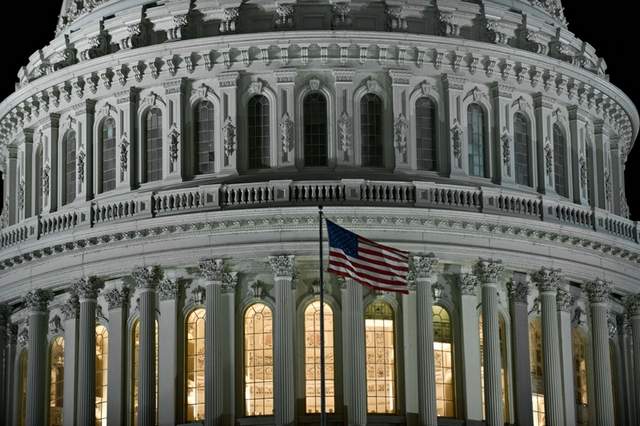Last week, Democrats blew up at data-driven political prognosticator Nate Silver giving Republicans a 60 percent chance of winning control of the Senate in this fall’s midterm elections. One wonders, then, how they’ll react to this from the Washington Post’s forecasting model:
Videos By Rare
“[O]ur initial sense is this: Republicans may have a far better chance of winning control of the Senate than we or other analysts previously thought. Here is a preliminary estimate: The GOP could have as much as a 4 in 5 chance of controlling the chamber.” (emphasis original)
As the rest of the piece explains, that initial sense is informed by the emerging picture of the candidates Republicans and Democrats will have running in Senate races this fall:
“Better candidates emerge when conditions in the country favor their party. As political scientists Gary Jacobson and Samuel Kernell have argued, strong candidates run when they have a better chance of winning. And in 2014 — as in most midterm election years — the playing field is tilted away from the president’s party. So we should see good Republican candidates emerging.
“Anecdotally, that’s what has been happening. In Arkansas, Mark Pryor’s opponent, Tom Cotton, is a House member. The same is true of Sen. Mary Landrieu’s opponent, Bill Cassidy, in Louisiana. And in Colorado and New Hampshire, as The Washington Post’s Chris Cillizza noted.” (links original)
In Georgia, of course, we are a few months away from knowing which Republican will emerge from the inevitable primary runoff. That has Democrats dreaming big about pulling an upset here. And it would be an upset: Even without knowing which Republican will face presumptive Democratic nominee Michelle Nunn, Silver’s forecast gives the GOP a 70 percent chance of winning.
The Democrats’ preferred scenario, with either Rep. Paul Broun or Rep. Phil Gingrey winning the GOP nomination, is looking somewhat more remote today. A trioof pollsin one week all show political newcomer David Perdue (cousin of former Gov. Sonny Perdue) leading the GOP pack. More to the point, the consistent second-place candidate is Rep. Jack Kingston — not Broun or Gingrey. There’s a lot of time to go, almost two months until the primary, so things can and probably will change. But as a big fund-raising quarter ends today, Perdue and Kingston — and to a large degree, Gingrey — look like the best bets to have the money to defend their positions in the polls. They could simply use their money to bloody each other, which would open things back up. Or they might try to keep things relatively clean until the runoff, knowing most of the other candidates don’t have the cash to attack them on TV.
A caveat here is that Perdue has never run for office before and thus has no track record of making it to November without hurting his own candidacy. Then again, Nunn is in the same spot — and won’t have the experience of a competitive primary to test and strengthen her political skills. (One wonders, if she really is a formidable candidate, why she wouldn’t go through a Democratic primary debate or two to polish her skills; she presumably could avoid saying anything that placed too far left and still win the primary handily.)
There’s a long way to go in other states, too. But as of today, the signs point to President Obama having to work with a Congress under complete GOP control during his last two years.

